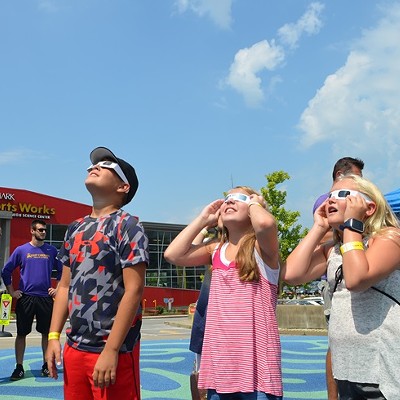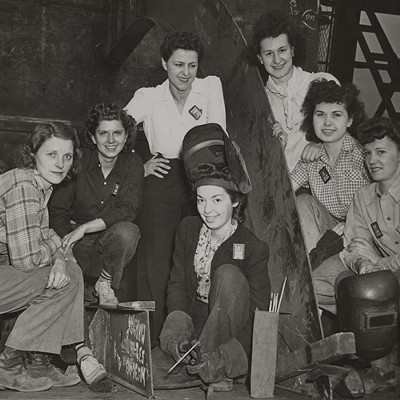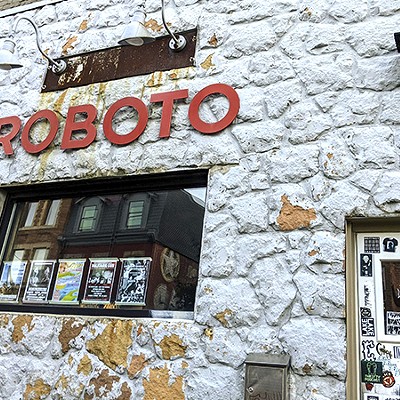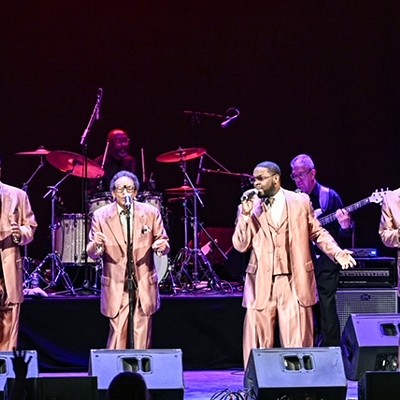
Taking place from Fri., April 9 through Sun., April 11, the event is described on the Decolonized Futures webpage as celebrating “how music, sound, listening, and other arts can challenge our everyday relationships to place.” Included are a number of artists spanning genre and media who represent a myriad of Afro/Black and Indigenous experiences.
Alexa Woloshyn, a Cooper-Siegel Assistant Professor of Musicology at CMU, launched Decolonized Futures in 2018 as a three-year project. She believes Resound/Revision Festival is a culmination of her vision for Decolonized Futures, particularly as a way to “bring together numerous artists creating new work that offers alternate visions of the future.”
For example, guests will be encouraged to confront their understanding of Pittsburgh as a place with connections to Indigenous people, not just in the past, but now and in the years ahead. To illustrate this, she says Decolonized Futures include Soundwalks that invite guests to visit various sites and experience “sonic meditations” on subjects like the Kinzua Dam on the Allegheny River, the building of which destroyed tribal lands and displaced hundreds of Seneca Nation members.
“With this region’s long and ongoing relationship with the Seneca, it was important to me to involve Seneca artists,” says Woloshyn, adding that Seneca musician Sadie Buck has composed a new song for her group, the Six Nations Women Singers, featured as part of the Futures concert set to stream on YouTube on Sat., April 10.
An Indigenous Pittsburgh Soundwalk will take place on Sun., April 11 that invites participants to “further explore the local understanding of Indigenous presence” and “challenge prior relationships to sites in and around Pittsburgh,” according to Woloshyn.
To comply with COVID-19 safety measures, materials for the soundwalk, including site-specific compositions created by students of Contemporary Soundscapes at CMU, will launch on Woloshyn's website on Sun., April 11. Once the materials are published online, participants may access them and complete the soundwalk on their own at any time.
“History is definitely important: we must face these histories, hear from these communities directly about their stories and the ongoing legacies of these histories,” says Woloshyn. “Futurisms can be effective in reconsidering — retelling— those histories. But we also sometimes need the help of artists to envision a more just and liberatory future. We can get trapped into thinking the path we are on and the direction we’re heading is inevitable. Futurisms push us to think outside of the box; we may not have even noticed we were in a box until we experience a completely different world.”
As a result, she says Futurist artists “evocatively expose the foundational, hegemonic narratives of our society and show us that other paths are possible.”
She adds that she was also mindful of making sure to include a number of Afro/Black and Indigenous voices, with the work of Inuit, Anishinaabe, Chickasaw, and Haudenosaunee artists.
Woloshyn says she has also been working with local Indigenous artists, including Mobéy Lola Irizarry Lambright and Morgan Overton, to create visual art for the festival.
The festival will also see the return of Chickasaw composer Jerod Impichchaachaaha’ Tate, who performed as part of Decolonized Futures when it first started in 2018.
There will also be a streaming concert with hip hop group Audiopharmacy and a roundtable on Afro/Black and Indigenous Futurisms featuring Rasheedah Phillips of Black Quantum Futurism, Johnnie Jae of A Tribe Called Geek, and DJ Shub.
Woloshyn hopes the festival can facilitate a dialogue that translates into action to create a better future for Afro/Black and Indigenous people in Pittsburgh and beyond.
“I hope that one effect will be an initial or deeper understanding of other worldviews,” says Woloshyn. “I frequently call upon this quotation from Stó:lo writer Lee Maracle: ‘How do you begin to tell someone their world is not the only one?’ Art is powerful in not telling but showing: immersing someone in these otherwise worlds.”


















